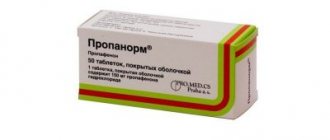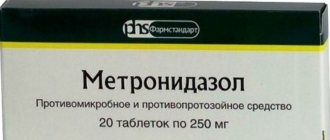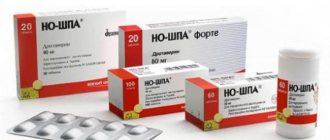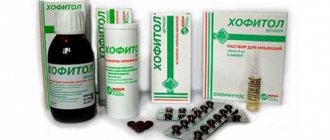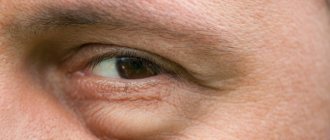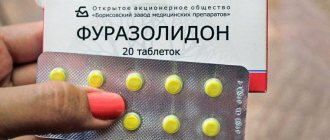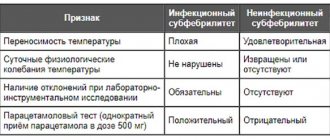Composition and release form
The drug contains 50 mg of furazolidone. The drug is available in tablet form. They are packaged in paper or plastic blisters of 10 pieces and in cardboard boxes. Furazolidone is a representative of the group of nitrofurans, synthetic antibiotics.
In addition to the active component, the drug contains excipients:
- lactose monohydrate (filler);
- silicon dioxide (thickener and enterosorbent);
- calcium stearate (thickener and stabilizer);
- potato starch (filler).
Reviews from doctors about furazolidone
| Rating 2.5/5 |
| Efficiency |
| Price quality |
| Side effects |
An excellent and fairly easy-to-use antimicrobial drug, it “treats” gastrointestinal tract infections very well, a good drug for a home first aid kit for foodborne illnesses and diarrhea, the effect comes quite quickly.
Other generics are cheaper with the same composition.
I use it in clinical practice to treat intestinal infections and diarrhea.
Operating principle, expected effect
Furazolidone is an antibiotic that is active against bacteria that attack the intestinal microflora. The drug is able to prevent digestive disorders caused by these bacteria. Many gram-positive and gram-negative bacteria, Candida fungi, Giardia, and Trichomonas are sensitive to this antibiotic.
Many people are familiar with the action of furazolidone from its predecessor, furatsilin, known for its antibacterial properties for decades.
The principle of action of the drug is its effect on reproducing bacteria. Antibiotics of this group are called oxygen scavengers or “snatchers”. In other words, they enter into a chemical reaction with the cells of pathogenic bacteria and, through amino acid bases, “steal” oxygen, blocking its access to these cells. Without oxygen, cells die.
However, the drug has such an effect only on those bacteria that participate in the division process. In addition to them, in the body affected by the infection there are also “dormant” bacteria (in an anaerobic state), which the antibiotic does not see until they wake up and begin to multiply.
It is for this reason that the course of taking Furazolidone is quite long: the drug must remain in the body until all pathogenic organisms wake up and are destroyed.
You should not expect a quick effect - the first results usually appear no earlier than after 4 hours, the patient’s condition becomes more stable on the second day. However, improving your health is not a reason to stop taking the drug. It is necessary to act according to the prescribed scheme, otherwise the “awakened” bacteria, which have not encountered resistance to the antibiotic, will quickly return the state to the previous phase - and you will have to start all over again.
Patient reviews of furazolidone
Although I have not often encountered various food poisonings, it is simply impossible to forget their unpleasant manifestations. That is why I always have Furazolidone in my first aid kit. It helps a lot against rotavirus infection, especially if you take the tablets in the first couple of hours of illness. But this drug especially helped me out when my daughter “brought” an infection from kindergarten. It seems there is nothing more terrible when your child vomits and you don’t know what to do. I was so glad to read in the instructions that Furazolidone can be given to children after three years of age! We took 3 tablets a day, and the next morning my baby was absolutely healthy! True, later I came down with an infection, but here too Furazolidone turned out to be at its best!
Simply an irreplaceable drug. It often helps me when I worry about something and get an upset stomach. And you run to the nearest toilet, it’s simply unbearable, it really interferes with your life. Furazolidone is my savior. I have known this medicine since childhood. The nervous disorder was inherited from my father, so the two of us always have Furazolidone. On any trip, going somewhere, especially to an exciting meeting, I always drink before the trip and take it with me, since diarrhea causes discomfort. I am also pleased, of course, with its price, which is very affordable. It costs a penny, but the effect is good. I don’t consider any other remedy for myself.
I was prescribed Furazolidone when I was admitted to the intestinal infections department. There it was prescribed to almost everyone at once until the causative agent of the infection was identified. Apparently, because of its effectiveness, because personally, all my unpleasant intestinal symptoms went away within a day. Although the drug is antimicrobial, if a viral intestinal infection was suspected, it was also prescribed to prevent bacterial infection from above. The only peculiarity is that the drug is bitter, and doctors do not recommend taking it on an empty stomach; it may cause you to vomit reflexively. I followed the recommendations and did not have any unpleasant symptoms from using it. But in my home medicine cabinet in case of intestinal upset, I prefer to keep milder products, they are too strong.
Despite its bitter and unpleasant taste, Furazolidone is a very effective remedy. If we compare, for example, with Enterofuril, it has a more effective effect. For example, I was diagnosed with “Acute gastroenterocolitis”, I alternately used two drugs “Enterofuril” and “Furazolidone”. The fact is that I tolerated Enterofuril much easier, since it did not have an unpleasant taste and was easier on the body (it coated the intestinal walls and was excreted in feces), but it did not help me. “Furazolidone,” on the contrary, had a good medicinal effect, but it had a lot of side effects, I had a very hard time tolerating it, and after prolonged use, a bitter taste appeared in my mouth, my skin turned slightly yellow. Perhaps this is all due to the fact that it is absorbed into the intestinal walls. Therefore, the conclusion is: despite its low price, Furazolidone is not always worth using, since for minor diseases, it is better to drink Enterofuril.
Since childhood, I have been taking furazolidone tablets for intestinal disorders. I love to eat delicious food, but my intestines are very weak, so I suffer from frequent stool disorders. Furazolidone is very convenient - you take a small tablet, and you can forget about the problem almost immediately. It’s very convenient to take with you, and the price is reasonable. I recommend it to anyone who has problems of this nature.
I always have it in my first aid kit, sometimes I even carry it in my purse (sometimes there are situations when this habit of mine is very helpful), it always helps with gastrointestinal disorders. But these pills did not work for my husband; after taking two pills, shortness of breath immediately began, I was scared! Therefore, I advise you, if you are taking this drug for the first time, to start with a lower dose so as not to repeat my mistakes! Now in the first aid kit, in case of intestinal disorders, there is always a separate medicine for my husband.
Probably the best drug that can be taken for various stomach problems. It acts very quickly, often with an upset stomach, just one pill is enough for the symptoms to go away. The cost of Furazolidone is very low, which is also good news. I also read that the drug is taken for various skin diseases and not only, but has been used for poisoning and disorders of the gastrointestinal tract.
I have known this drug for a long time. This is an excellent and cheap antimicrobial and antiprotozoal drug. Among other indications for use, it copes well with intestinal disorders. Acts quickly and effectively. When traveling on vacation, when changing your usual environment, and simply in your home medicine cabinet, it should BE. Unwashed vegetables, bad water, poor quality food - all this leads to bacterial diarrhea.
Furazolidone is a product that always goes with me along with my toothbrush on vacation, and every day in my bag when I go to work. As soon as the first signs of poisoning appear due to unwashed hands and dirty fruits, this drug copes well with them, blocking further poisoning of the body without disturbing the intestinal microflora. The big advantage is that it is not one of the antibiotics that have recently been taken for the slightest ailment. I advise everyone to always have Furazolidone with them in order to be prepared for unpleasant surprises! Tried it on myself more than once!
Furazolidone often saves the day. It happens that you catch a cold “like a woman” and suffer. My mother always recommended Furazolidone to me. After drinking this medicine for literally 2-4 days, it gradually becomes easier. The number of urinations will decrease from the first time you take the pills. I recommend taking it together with Furagin - the treatment will be effective.
I don’t like to keep a lot of medicines in my medicine cabinet, but furazolidone is there. I have a tendency to frequent cystitis, and my husband has an intestinal disorder, this medicine is a quick response for us in case of such problems. Moreover, when we go on a trip, this medicine is always on the list of the travel first aid kit. The advantages of furazolidone also include its price. The medicine is quite old, I remember that my mother gave it to my younger brother at the age of three; apparently, it was prescribed to children before. I don’t give it to a child; the instructions prohibit using it before the age of five.
Indications for use
Furazolidone is prescribed for diarrhea and other symptoms of diseases caused by intestinal infections. Among these diseases are E. coli, dysentery, typhoid, paratyphoid and others. In this case, you can achieve the best effect by taking the antibiotic and enterosorbents in turn.
Loose stools are not necessarily an indicator of an intestinal infection, therefore, they are not always an indication for taking Furazolidone. The drug is effective only against bacteria (many, but not all), so the ideal situation would be in which a person has been tested and knows exactly what disease he wants to cure.
Otherwise, you need to focus not only on diarrhea, but also on other symptoms of intestinal infection. They can manifest themselves in different ways, but most often the following symptoms are observed simultaneously or separately:
- increased body temperature;
- vomit;
- weakness;
- blood in stool.
Furazolidone is a fairly serious antibiotic. Like all representatives of this group of drugs, it has many side effects. It is not recommended to take it just in case of occasional loose stools. Taking medication should be a justified measure and requires consultation with a doctor.
In addition to diarrhea, indications for taking the medicine are infections of the genitourinary system and damage to infected skin.
Analogs
Groups of drugs that have the same effect in case of poisoning. These include:
- Nifuroxazide. Available in tablet form. Acts on pathogenic flora. Taken for various forms of diarrhea.
- Azithromycin. Used for various gastrointestinal infections.
- Enterofuril. It is a derivative of nitrofurans. Prescribed to eliminate diarrhea of bacterial origin.
- Phthalazol. Used for dysentery and other intestinal infections.
There are no 100% analogs of Furazolidone. The listed groups of drugs have antimicrobial activity. They are widely used for intestinal intoxications.
Consult your doctor before use.
Instructions for the use of Furazolidone for diarrhea in adults and children
The doctor selects the dosage depending on the general condition of the patient and the bacteria that caused the diarrhea. This is logical: ordinary food poisoning requires one approach, but life-threatening typhoid or cholera requires a completely different one. Therefore, the dosage described below has only general, average values.
If the drug is prescribed for an adult, then 100-150 grams of the product (2-3 tablets) should be taken. For children over 5 years of age, the permissible dose is 25-50 grams (0.5-1 tablet). For a child from 1 year to 5 years, the dosage is calculated depending on body weight: 10 mg of medication per 1 kg of weight. You need to take the medicine 3-4 times a day.
The course of treatment lasts from 5 to 10 days. However, if no positive effect was detected on the second or third day, it means that diarrhea is most likely caused by bacteria that are insensitive to this antibiotic. You should consult your doctor to clarify the diagnosis and change the drug.
Furazolidone should be taken after meals, as it negatively affects the walls of the stomach, and washed down with at least a glass of water. The drug should be taken at regular intervals.
If you missed a dose of the drug (and this happens when the disease recedes), you should immediately take the forgotten dose. If the omission was noticed when it was time to take the next tablet, there is no need to double the dosage. You should not adjust the dosage yourself: if sudden changes occur in your health, you should consult your doctor about changing the treatment regimen. If there are no other doctor’s recommendations, be sure to complete the therapeutic course to the end.
While treating a child with an antibiotic, you need to monitor his behavior and well-being in order to promptly notice allergic reactions and other side effects and prevent their development.
When using Furazolidone to treat diarrhea, it is important to adhere to the diet and drinking regimen. It is necessary to drink at least 3 liters of clean (non-alkaline) water - this will help avoid dehydration. When weakened, you can drink strong sweet tea. For the entire period of taking the drug, you should completely avoid cheeses, smoked foods, legumes, canned and pickled vegetables - this will help reduce the risk of adverse reactions.
While taking the drug, the color of the urine may change - in this case, this is a type of normal that does not require additional treatment.
Can children take Furazolidone?
Contraindication for taking the drug is children under 5 years of age. However, in practice there are cases when pediatricians or gastroenterologists decide to prescribe the drug to children under 5 years of age. Most often we are talking about salmonellosis, dysentery, giardiasis, when Furazolidone for diarrhea in adults is prescribed as an adjuvant in the complex treatment of the disease.
Only a doctor can prescribe the drug to a child under 5 years of age! The specialist will select the optimal dosage of the drug depending on the age, height, and weight of the baby.
Contraindications
The drug should not be taken if the kidneys are impaired, since it is excreted through the urinary tract. Furazolidone has a negative effect on the liver, so if you have cirrhosis or other lesions of this organ, you should not take this antibiotic.
The product contains lactose monohydrate, so if you are deficient in lactase (the enzyme that breaks down lactose), you should not take it. Contraindications also include allergic reactions to any of the components or to another antibiotic from the nitrofuran group, pregnancy, breastfeeding and children under one year of age.
People of retirement age and those who suffer from a deficiency of enzymes for the breakdown of glucose (diabetes), have an imbalance of water and electrolyte balance (hyperhydration, that is, excess water, or dehydration, that is, dehydration) and anemia should be treated with special caution when taking the drug. , since the drug can negatively affect blood cells.
Side effects and overdose
Possible undesirable effects of taking Furazolidone for diarrhea include:
- sudden loss of appetite, anorexia;
- tachycardia, increased blood pressure;
- headache;
- cough, bronchospasm, chest pain;
- unexpected increase in symptoms of poisoning (nausea, vomiting and diarrhea);
- allergies (redness, itching);
- lethargy, slow reaction;
- exacerbation of depression in those who are prone to this disease.
To reduce the number of side effects, along with the antibiotic, the doctor prescribes a course of vitamin B and lactobacilli.
If the dosage is exceeded, Furazolidone can cause hematotoxicity (negative effects on blood cells, their functionality and quantity), toxic hepatitis (destruction of liver cells), polyneuritis (damage to nerve fibers).
The consequences of an overdose are reversible; to do this, at the first symptoms you need to stop taking the medicine, rinse your stomach and consult a doctor.
For diarrhea
As mentioned earlier, Furazolidone is used for diarrhea. Even in our 21st century, when high technologies are developed, you can simply forget to wash your hands when you come from the street, fail to look at the expiration date of food, or unknowingly wash down fresh cucumbers with fresh milk, and infectious diseases have not gone away. In the same way, people are faced with dysentery and protozoal diseases. Despite technological progress, the human body has remained the same and bacteria, as well as single-celled parasites, continue to cause trouble to humans. One of the solutions in a situation with diarrhea is Furazolidone. Often people who have used the drug leave reviews on social networks, forums and various pharmacological sites. Some, unfortunately, “constant nausea after taking it”, “after taking one tablet of Furazolidone, the diarrhea stops, but severe constipation begins.” Other users are happy with the drug because they say that “I took 2 tablets of Furazolidone after eating - and everything stopped instantly: both the diarrhea and the temperature subsided”, “an excellent drug for poisoning”, “helped cure a child from diarrhea”. The likelihood of side effects and the danger of overdose is the main reason why the dose of the drug should be determined by a gastroenterologist, and the drug itself is sold with a prescription.
Interaction with other medications and alcohol
The activity of the drug is reduced when taken simultaneously with quinolones. This group includes drugs based on the following active ingredients:
- gatifloxacin (Gatispan, Zarkvir);
- gemifloxacin (Faktiv);
- levofloxacin (Lefokcin, Levolet, L-Optic Rompharm and others);
- lomefloxacin (Xenaquin, Lomacin);
- oxolinic acid;
- ciprofloxacin (Ciprinol).
Concomitant use with chloramphenicol (Levomycetin) increases the risk of anemia.
You should not take the drug simultaneously with sedatives, antidepressants and painkillers due to a possible sharp increase in blood pressure.
Without medical supervision, you should not combine the drug with cough and other cold symptoms.
You should not take the drug with alcohol - this causes a reaction reminiscent of severe alcohol poisoning: nausea, dizziness, impaired coordination of movements, and a feeling of depression. You can drink alcohol no earlier than 4-5 days after completing the course of treatment, provided that there are no adverse reactions from the liver.
Furazolidone: what is it prescribed for?
The action of the medicine is to neutralize toxic infections. The drug is used in the treatment of giardiasis, amoebiasis, trichomoniasis, and bacterial colitis.
Tablets are often prescribed when necessary to eliminate diarrhea in adults and children. Reviews available about the drug "Furazolidone" prove that all symptoms of irritable bowel are relieved within 5-6 days. But high efficiency is possible only when the cause of the disease is pathogenic microflora.
